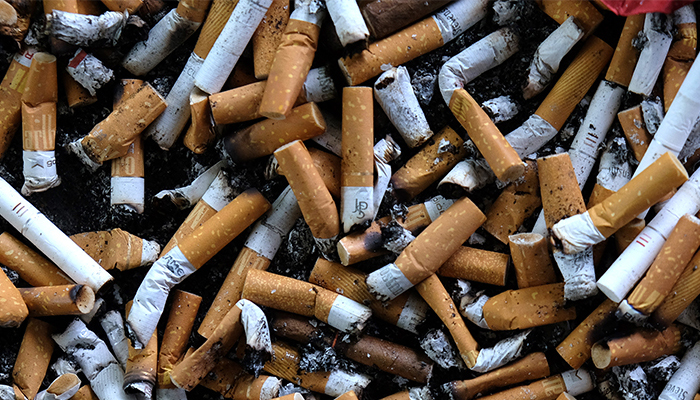Sparc hails uniformed tax on tobacco
Islamabad: Health activists have thrown their support behind the International Monetary Fund (IMF) recommendations for Pakistan, with a specific focus on restructuring tobacco taxation. During the event “Fuelling Economic Growth through Increased Tobacco Taxation” organised by the Society for the Protection of the Rights of the Child (SPARC), activists urged the Government of Pakistan to transition to a Single Tier Tobacco Taxation System, thereby eliminating the second tier. This strategic move is deemed essential not only for boosting revenue but also for relieving the healthcare cost burdens imposed by tobacco-related illnesses.
Malik Imran Ahmed, Country head Campaign for Tobacco Free Kids (CTFK), highlighted the alignment between the IMF’s recommendations and the ongoing discussions with Pakistan. These discussions aim to tackle the nation’s fiscal and external sustainability weaknesses while fostering economic recovery and inclusive growth. A key component involves strengthening public finances through gradual fiscal consolidation, broadening the tax base in undertaxed sectors, and improving tax administration to enhance debt sustainability. Imran emphasized the urgent need to tie these objectives with tobacco taxation, stressing the imperative of reforming Pakistan’s cigarette taxation system.
Malik Imran further emphasized that revitalizing Pakistan’s cigarette taxation system transcends mere fiscal considerations; it is a matter of urgent public health concern. He lamented that despite the substantial taxes imposed on cigarettes, the revenue generated falls short of covering the healthcare costs incurred due to smoking-related illnesses. In the fiscal year 2022-23, taxes covered a meagre 16% of these expenses, indicating a significant decline from 19.5% in 2019.
-
 Bucks Vs Thunder: Nikola Topic Makes NBA Debut As Milwaukee Wins Big
Bucks Vs Thunder: Nikola Topic Makes NBA Debut As Milwaukee Wins Big -
 King Charles Breaks 'never Complain, Never Explain' Rule Over Andrew's £12 Million Problem
King Charles Breaks 'never Complain, Never Explain' Rule Over Andrew's £12 Million Problem -
 Casey Wasserman To Remain LA Olympics Chair Despite Ghislaine Maxwell Ties
Casey Wasserman To Remain LA Olympics Chair Despite Ghislaine Maxwell Ties -
 Shaun White Is Back At The Olympics But Not Competing: Here’s Why
Shaun White Is Back At The Olympics But Not Competing: Here’s Why -
 Breezy Johnson Engaged At Olympics After Emotional Finish Line Proposal
Breezy Johnson Engaged At Olympics After Emotional Finish Line Proposal -
 King Charles Wants Andrew To 'draw A Line' Under Epstein Issue
King Charles Wants Andrew To 'draw A Line' Under Epstein Issue -
 John Wick Game Confirmed With Keanu Reeves And Lionsgate Collaboration
John Wick Game Confirmed With Keanu Reeves And Lionsgate Collaboration -
 Gigi Hadid Feels 'humiliated' After Zayn Malik's 'pathetic' Comment: Source
Gigi Hadid Feels 'humiliated' After Zayn Malik's 'pathetic' Comment: Source -
 Olympics Men Hockey Game: McDavid, Crosby Power Canada Past Czechia
Olympics Men Hockey Game: McDavid, Crosby Power Canada Past Czechia -
 Sony PlayStation State Of Play Reveals 'Castlevania' And 'Metal Gear' Return
Sony PlayStation State Of Play Reveals 'Castlevania' And 'Metal Gear' Return -
 Ontario Tuition Freeze Ends, Allowing Colleges And Universities To Raise Fees
Ontario Tuition Freeze Ends, Allowing Colleges And Universities To Raise Fees -
 King Charles Should Apologise To All Rape Victims, Says New Poll
King Charles Should Apologise To All Rape Victims, Says New Poll -
 Cardi B Shares Emotional Message Amid Stefon Diggs Split Rumors
Cardi B Shares Emotional Message Amid Stefon Diggs Split Rumors -
 James Van Der Beek’s 'heartbroken' Ex Wife Breaks Silence Of His Death
James Van Der Beek’s 'heartbroken' Ex Wife Breaks Silence Of His Death -
 Sarah Ferguson, Shamed Andrew Spotted In ‘family Costume Drama’
Sarah Ferguson, Shamed Andrew Spotted In ‘family Costume Drama’ -
 Kylie Kelce Reveals Why She Barely Planned Her Wedding Day?
Kylie Kelce Reveals Why She Barely Planned Her Wedding Day?




